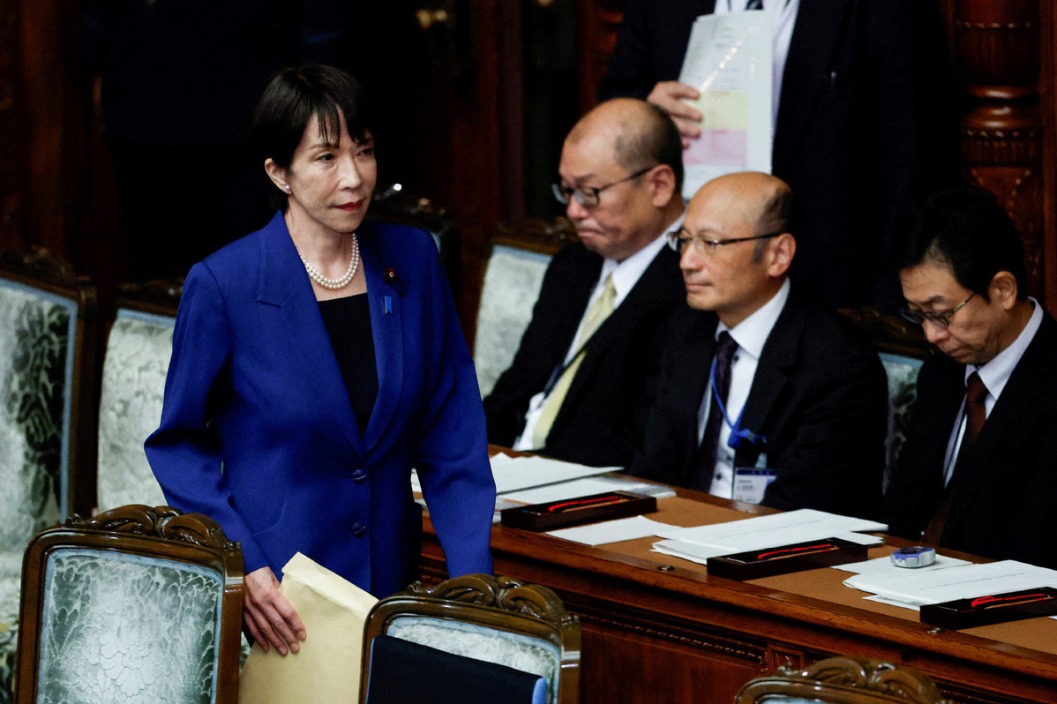Lessons for other countries


China's historical concept of governance and its modern fate ensure it will not pose a threat
No civilization or culture has emerged perfectly from the cradle of history and none has fully realized their own dreams of progress. None has demonstrated an ability to fully liberate the creative potential and social justice of their own societies.
A Marxist understanding of history asserts that progress is made through the positive resolution of contradictions. This is explained by the Marxist dialectic and negation-of-the-negation. Conflicts are resolved in favor of outcomes that increase progress, and the bellwether of progress is advancing human liberation and social justice. Nevertheless, this does not mean the past is erased or that the best parts of it should be forgotten and consigned to the dustbin of history. On the contrary, there are some ancient values that are carried forward through time that can be described as transhistorical "concrete universals". In China, such values include harmony and others, like datong, that share a common essence with today's concepts of socialism and communisim. These remain the intrinsic civilizational and cultural values of China that are periodically updated and advanced by the instrumental values associated with good governance.
One of the ways these values advance is through syncretism. This is a long-standing characteristic of traditional Chinese thinking as well as Chinese Marxism: a blending of the best ideas, sometimes including those that come from competing schools, and then adapting through change. This helps explain in part Chinese Marxism's emphasis of Confucian concepts such as a xiaokang, or well-off society while also promoting Taoism's principle of promoting harmony between human and nature. But Chinese Marxism also opened the door to the best that Western and other civilizations had to offer, past and present, and in many respects continues to do so.
This brings us to five keys lessons of Chinese history related to governance.
The first lesson: China was the first to innovate an analog of the modern state, emerging with the Qin Dynasty (221-206 BC) and accelerating with the Han Dynasty (206 BC-AD 220), the latter merging Qin legalism with Confucianism to create a professional state with durable institutions that above all valued good governance and the rule of law — achievements that outpaced similar breakthroughs in other civilizations and countries by centuries, and in some cases millennia. In short, as a civilization but institutionally, the Chinese innovated a state culture that itself became a "concrete universal value "to be protected against threats such as engaging in imperial overreach.
The second lesson: rule yourself well or risk being ruled worse by others. In this respect, establishing, sustaining and improving self-governance, including advancing radical paradigm shifts when circumstances require, are unending and often exhausting tasks, while attempts to rule others are a fool's errand that will compromise your ability to rule yourself and therefore compromise your own sovereignty and security.
Indeed, is this not the lesson we've seen again and again throughout imperialism? In fact, another lesson we have learned from imperialism is that invading and conquering others has often been led by technical innovations, such as a new weapon or tactics that can be used to exploit the vulnerabilities of others, and not innovations in governance such as those advanced in China's ancient past and modern present. For example, Alexander the Great took a military advance innovated by his father all the way to India, but had no means for ruling and holding all the territory he conquered. More fundamentally, why did other imperial countries, whether Roman, the UK or the US ultimately fail? On the one hand, they never mastered the art of self-rule, which made their attempts to rule others even worse. On the other hand, they were often motivated to control others to make up for the shortcomings of self-rule at home, to exploit if not rob others and likewise externalize their own failures onto others, including the fundamental inequalities that are normalized when zero-sum games associated with private property rights are enshrined as their first principle.
The third lesson: you have to learn lessons from your own history and base your advances in your own culture. Otherwise you risk losing yourself altogether, as Kakuzo Okakura, author of The Book of Tea (1906), warns in the wake of Japan's near-total modern transformation in the late 19th century, through which Japan all but abandoned traditional values and culture aside from superficial performances of the same and rushed headlong to adapt the Western model.
Additionally, you have to base your developments in your own culture and values or you risk repeating the mistakes of the West, as Japanese imperialism did, and still later, finding yourself confronting a new era, unable to reform or adapt to new needs, and getting stuck, again as Japan has, in middle income and security traps. Further, you also risk becoming rooted in values and practices that gave rise to problems such as the Anthropocene and growing existential risks associated with climate change, including novel disease outbreaks. Or you risk lingering for decades in a postcolonial malaise, unable to express an authentic identity or construct meaningful governance because you don't really know who or what you are, and you remain vulnerable to meddling from stronger powers, including your former colonial master, who preys upon your own insecurities, which he fostered in the first place.
Nevertheless, you also have to learn from others and share what you learn with others. China owes great debts to Marxism, to Leninism, and what some might describe as US Fordism. This is to say that China owes great debts to the Enlightenment, the Industrial Revolution, and even the global capitalist economy. But the dialectics of reason requires placing these debts in their proper place and contexts, and understanding that some of them, when possible, must be reduced in importance and even "negated".
The fourth lesson: whatever role that culture and values play in their idealistic forms, whatever lessons we learn from the past, the values of Chinese governance are a transhistorical concrete universal that always seeks their roots in material forms. This is a key lesson in Marxism but it's also one of the first lessons I learned when I came to work in China in 2010: the base determines the superstructure, and the material shapes the ideal. Reconcile the words you read, hear and say with material facts. And in this respect, the material facts of Chinese governance qua development and progress, at home and abroad, past and present, have proved the words true.
The fifth and final lesson: a rising China with strong governance, contrary to negative speculation, is not a threat to others but the opposite. The stronger and more effective China becomes, the more it reflects on Chinese history and its own experiences, the more it understands its own limits, the more it embodies the deeply held cultural value of good governance, then the greater likelihood that China will tread carefully with others, even to the point of supporting if possible others' advances as a means for ensuring greater security, development and a shared future for all. This is the trend we've seen accelerating over the past decade with the Belt and Road Initiative, and it's the only logical way forward for a country that emphasizes good governance as China does.
The author is a professor of politics and international relations at East China Normal University and a senior research fellow at the Institute for the Development of Socialism with Chinese Characteristics at Southeast University and the Hainan CGE Peace Development Foundation. The author contributed this article to China Watch, a think tank powered by China Daily.
The views do not necessarily reflect those of China Daily.
Contact the editor at editor@chinawatch.cn


































